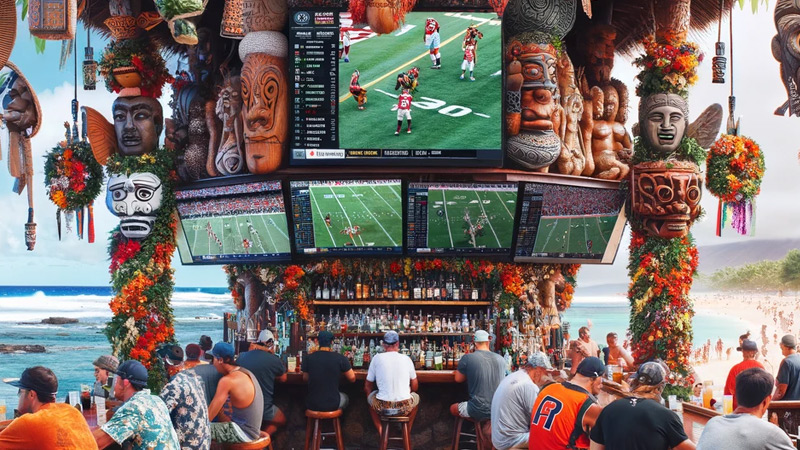Hawaii Gambling Bills Filed in State Senate and House
Two very different bills looking to legalize sports betting in Hawaii were filed late last week. The island State is one of only two in America to not have any form of legal gambling, the other being the highly religious Utah.
In the first bill, SB3376, Senator Ronald Kouchi has proposed an online sports betting and poker market via a sole operator working in conjunction with the state. It proposes a high starting tax rate that decreases as the contract runs on.
Meanwhile, HB2765 was filed by State Representative Daniel Holt. It allows for a more open online sports betting market with various competing operators, and it sets the legal betting age at 18.
Neither bill contains a reference to retail sports betting locations on the island.
Both proposals did cite the need to boost tax revenues for the state. That’s after recent years of wildfires have damaged infrastructure and killed at least a hundred people across its second-largest island, Maui, costing billions of dollars.
They also pointed out that many Hawaiians already gamble at offshore sportsbooks.
Monopoly Bill
Senate Bill 3376 is an interesting option, differing from most U.S. markets in several ways.
For one, it will be a monopoly market with only one operator. Only the New Hampshire sports betting market was set up in such a way, although Hard Rock has an effective monopoly hold on sports betting in Florida as it stands.
Under this proposed framework for Hawaii sports betting, the market will consist of one operator, also licensed to offer online poker, which will work with the state regulator on the operation.
The proposal also sets up a 70% revenue sharing deal for the first year of the 10-year term. After that, the rate will decrease by 5% each year after that to a low of 20%.
Most U.S. markets that decide on a revenue sharing deal over higher tax rates start it low and raise it as sportsbooks have time to grow into the new market. If a 70% tax rate is passed, it will be the highest in the nation for the first four years.
At that point, it will be level with taxes for operators offering sports betting in New York, which is the largest U.S. market.
Less Detailed Proposal
Holt’s HB2675 suggests opening up the market to several operators on three-year license terms.
In fact, it specifically states that as long as operators meet requirements, there should be no upper limit on applicants.
The proposed requirements include existing operations in at least three states and the submission of a development proposal covering local job opportunities and other benefits a company might bring to Hawaii.
It is, however, much less rounded out than its Senate equivalent. Instead of offering a specified tax structure, it refers to the Hawaii tax code for guidance.
Under that law, Hawaii-operating service businesses are taxed at 4% of gross income. That guideline would put Hawaii at the lowest end of the national gambling tax scale, which seems unlikely.
Early Days Yet
The Hawaii legislature adjourns for its first 2024 session in May, so there’s plenty of time left for these bills to change or be defeated.
Bills looking to legalize sports betting in Hawaii also failed in 2021 and 2022. No one made serious efforts in 2023.
As in many states with budget deficits and problems, some lawmakers clearly believe that gambling taxes may be the answer – especially considering the ease of accessing offshore ‘books.
“Tens of millions of dollars generated from online gambling are being realized by offshore operators illegally serving Hawaii residents, but no benefits are provided to the state,” says SB3376.
Related: Party Paradise slot, reviewed and rated












